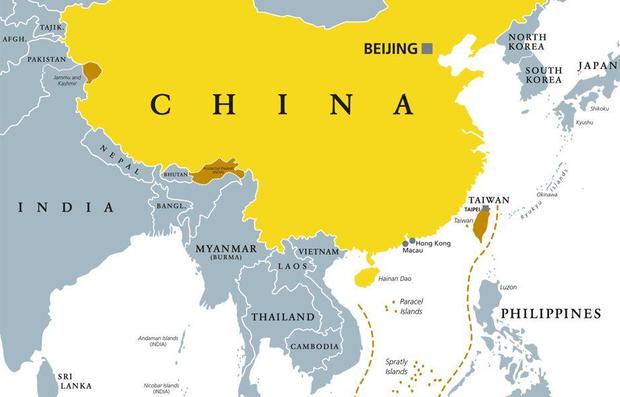China's early reaction to U.S.-Taiwan meeting is muted, but there may be more "forceful measures" to come
China deployed warships around Taiwan Thursday as it vowed a "resolute response" to the island's President, Tsai Ing-wen, holding a meeting the day before with U.S. House Speaker Kevin McCarthy. China had repeatedly warned the U.S. and Taiwan not to let the high-level meeting take place, so when McCarthy and a bipartisan group of his fellow U.S. lawmakers did it anyway, it was a clear signal to Beijing.
The meeting was meant to telegraph that the United States would come to the rescue if China tries to seize Taiwan by force. China considers Taiwan, an island just off its east coast that's been democratically governed for seven decades and is now home to well over 20 million people, part of its sovereign territory. President Xi Jinping has made it clear that he will use force to "reunite" it with the mainland, if necessary.
- What to know as U.S. tension with China mounts over Taiwan
China was predictably furious about the highly choreographed show of solidarity in California.
On Thursday, China's Foreign Ministry warned the country would take "resolute and forceful measures to defend national sovereignty and territorial integrity," and warned the U.S. "not to walk further down a wrong and dangerous road."
The last time China was enraged by U.S. and Taiwanese officials meeting, after then-House Speaker Nancy Pelosi visited the island and met with President Tsai, Beijing's "resolute" response came in the form of an intimidating display of force, with Chinese missiles, planes and warships flying and sailing all around Taiwan.
Seven months later, life in Taipei ticked along Thursday, with tension notching up and people bracing for another round of Chinese reprisals.
Taiwan's defense ministry said three Chinese warships were detected Thursday in the Taiwan Strait, which separates the island from mainland China, and an anti-submarine helicopter also crossed the island's air defense identification zone. Beijing also deployed coast guard vessels for atypical patrols, drawing a protest from Taipei.
While the immediate reaction from Beijing appeared muted, it took several days for China to ramp up its war games around Taiwan after Pelosi's visit last year.

Michael Cole, an analyst with the Republican Institute in Taipei, said there was "absolutely no doubt that they will do something to try to punish Taiwan as a result of President Tsai's meeting with speaker McCarthy."
- China says U.S. "endangering regional peace" with Philippines military deal
That retribution could come at any time. Mainland China is only 150 miles across the Strait from Taiwan, and as demonstrated by its maneuvers on Thursday, its military is never far away.
Even as Beijing calculated its next moves, another potentially contentious visit began. The American Institute in Taipei, which serves as a de facto U.S. embassy in Taiwan, said a group of eight American lawmakers, led by House Foreign Affairs Committee chair Michael McCaul of Texas, had arrived for three days on the island to discuss security and trade issues.
- In:
- Taiwan
- War
- Xi Jinping
- Joe Biden
- China
- Tsai Ing-wen
- Asia
- Kevin McCarthy

Elizabeth Palmer has been a CBS News correspondent since August 2000. She has been based in London since late 2003, after having been based in Moscow (2000-03). Palmer reports primarily for the "CBS Evening News."
Disclaimer: The copyright of this article belongs to the original author. Reposting this article is solely for the purpose of information dissemination and does not constitute any investment advice. If there is any infringement, please contact us immediately. We will make corrections or deletions as necessary. Thank you.







